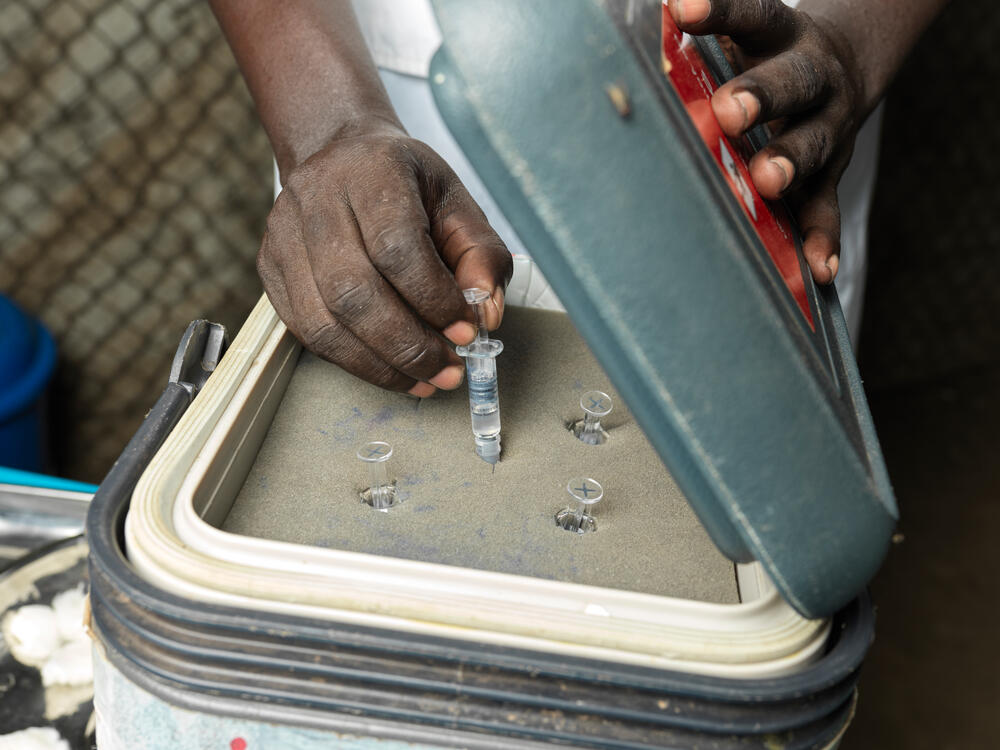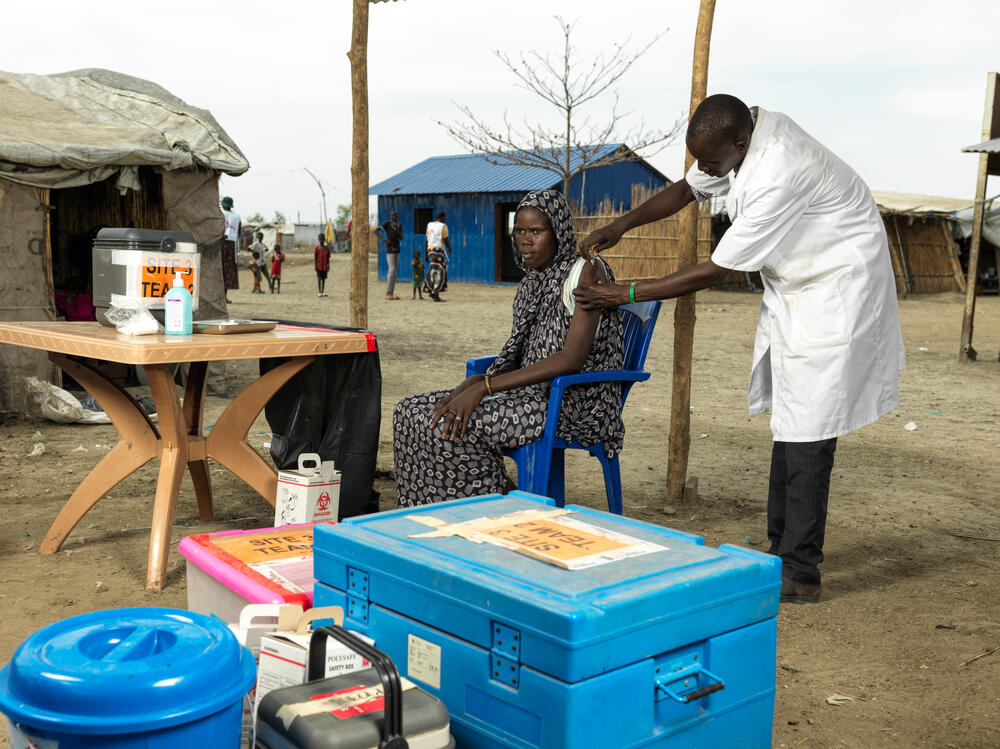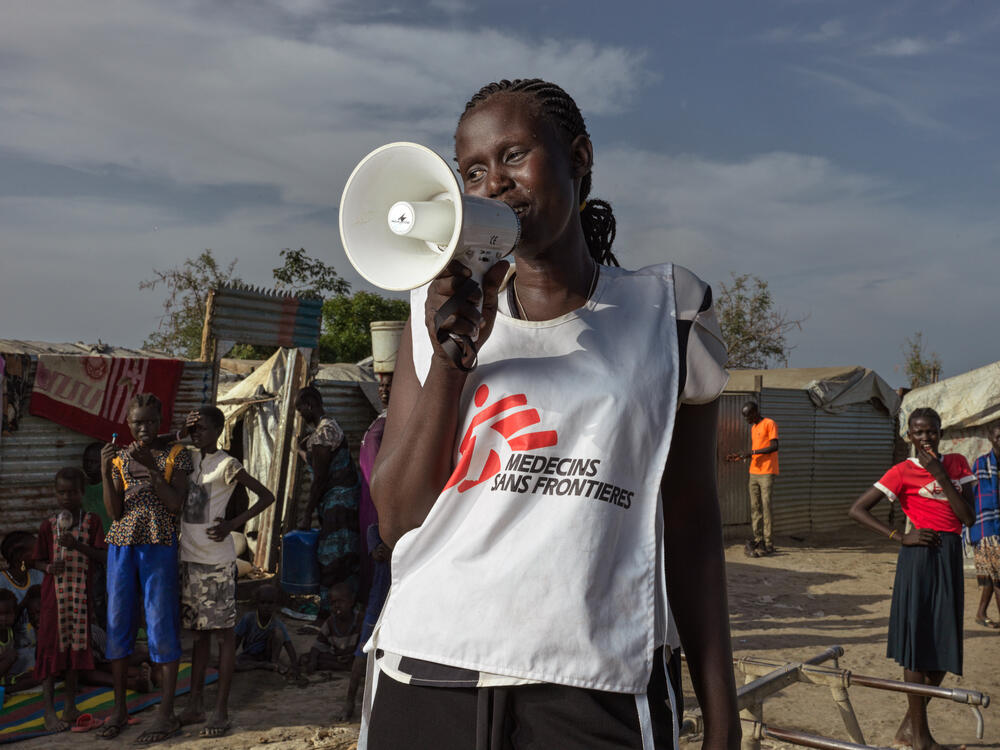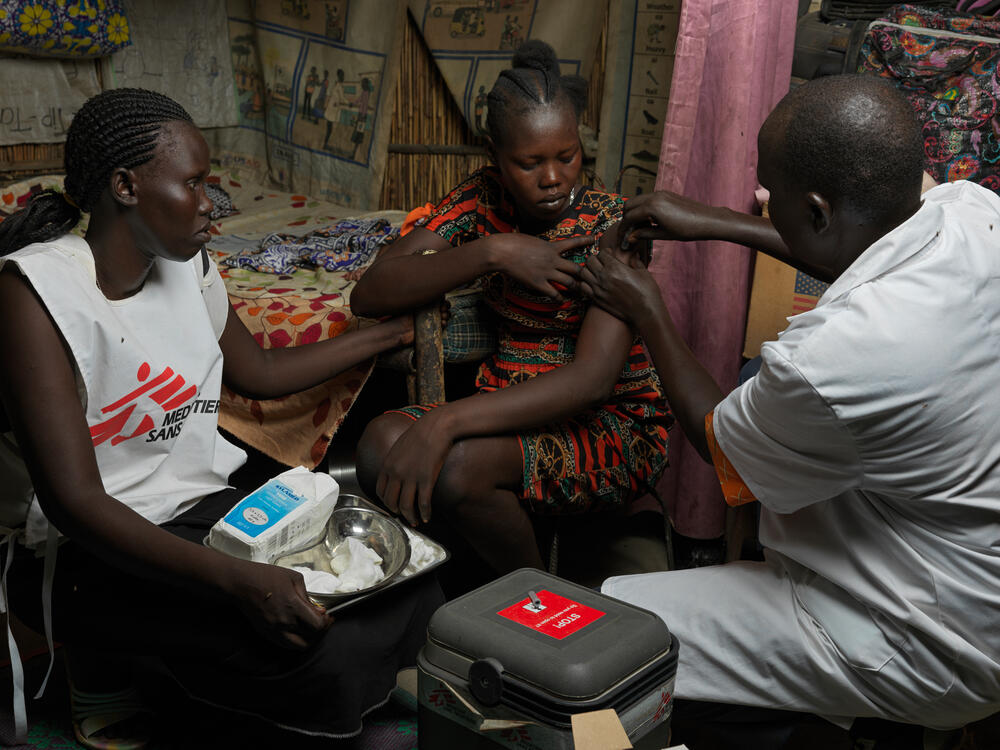Hepatitis E: MSF carries out world’s first-ever ‘reactive’ vaccination campaign
In a world first, healthcare teams in South Sudan have carried out a vaccination campaign in response to an active outbreak of hepatitis E – a virus that can kill up to a quarter of pregnant women who get sick.
The mass immunisation, undertaken by Médecins Sans Frontières / Doctors Without Borders (MSF) and the Ministry of Health, now raises hopes of controlling a disease that can also cause dangerous pregnancy complications.
This life-saving project has now been featured in medical journal The Lancet Infectious Diseases, in the hope that it will encourage affected countries around the world to follow.
Explained: Hepatitis E
Hepatitis E is the most common cause of acute viral hepatitis, causing approximately 20 million infections and 44,000 deaths per year according to the World Health Organization (WHO). However, there is no specific treatment available.
The virus is transmitted through faecal contamination of food and water. This means large-scale outbreaks usually occur where water and sanitation are poor, such as in camps for refugees and displaced people.
Hepatitis E is particularly dangerous for pregnant women, with a fatality rate of 25 percent as well as an increased risk of spontaneous abortion, stillbirth and neonatal complications.
"The fight against hepatitis E has been long and frustrating," says Dr Monica Rull, MSF Medical Director.
"Over the last two decades, MSF has been responding to hepatitis E outbreaks in displacement camps, trying to control the disease in challenging conditions and seeing the devastating impact on extremely vulnerable communities.
“With the experience of this vaccination campaign, we hope to change the way we tackle hepatitis E in the future."
Vaccinating Bentiu
In March and April 2022, MSF and South Sudan's Ministry of Health jointly carried out the first two rounds of the hepatitis E vaccination campaign in Bentiu – a vast camp for displaced people.
The camp, in Unity State, is the largest of its kind in South Sudan and was created in 2014 at the height of the country’s civil war. Today, approximately 112,000 people live here, many having fled recent violence and flooding.
So far, around 25,000 people including pregnant women have received the vaccine. A third and final round will be conducted in October 2022.
“Given the successful implementation and the community’s enthusiastic response in the first two rounds, this innovative vaccination campaign can serve as an example and be replicated in similar places managing hepatitis E outbreaks," says Dr John Rumunu, Director General for Preventive Health Services at South Sudan's Ministry of Health.
"I hope the vaccine will help reduce infections and deaths from hepatitis E in Bentiu and beyond."

Help us prepare for the next emergency
A new response
The Ministry of Health asked MSF to help its efforts to control the outbreak through a large-scale vaccination campaign.
The only available hepatitis E vaccine, Hecolin, has been shown in clinical trials to be highly effective at preventing disease, and the WHO had recommended that it be considered for use in outbreak responses as early as 2015. However, until now it has only been used on an individual basis in China, where it is licensed and used to vaccinate travellers.
This makes the vaccination campaign in Bentiu the first time it has been used in response to a public health emergency.
MSF has been present in Bentiu since its creation and has seen hepatitis E outbreaks since 2015. These are the consequence of appalling living conditions, including a lack of access to adequate water, sanitation and hygiene.
In 2021, extreme flooding across South Sudan drove new influxes of displaced people, exacerbating the already deplorable living conditions and increasing the spread of waterborne illnesses, including hepatitis E.
Since July 2021, at MSF’s hospital in Bentiu, our staff have seen 759 patients with confirmed hepatitis E, of which 17 died.
Medical milestone
Now, a letter describing the vaccination campaign has been published in the medical journal The Lancet Infectious Diseases.
“This is a significant milestone in global efforts to tackle hepatitis E," says Melanie Marti, Medical Officer, Immunisation, Vaccines & Biologicals at the WHO.
"It is the first time a vaccine has been used to combat the effects of this potentially devastating disease. This is despite the fact that the vaccine has been licensed for over a decade.
“At the WHO, we strongly encourage all countries experiencing an outbreak to use the vaccine against hepatitis E, including in pregnant women."
The success of the Bentiu vaccination campaign shows that it is possible to use the vaccine for outbreak response, even under difficult conditions. The Ministry of Health and MSF will continue to monitor and report on the results.
While other outbreak control measures are also necessary, including improving water and sanitation services, health officials believe this vaccination campaign is an important step toward reducing the impact of hepatitis E in the future.
MSF hopes the campaign will encourage other countries to use the vaccine as part of measures to control outbreaks of hepatitis E.
MSF in South Sudan
In July 2011, South Sudan became the world’s newest country after gaining independence from Sudan. The peace deal that led to the split also ended Africa’s longest-running civil war. But in December 2013, South Sudan was plunged back into chaos as civil war erupted amid a power struggle between the president and his deputy.
The conflict has forced millions of people from their homes and left many without access to basic necessities, such as food, water and healthcare. Médecins Sans Frontières/Doctors Without Borders (MSF) works in hospitals and clinics throughout South Sudan, where we run some of our biggest programmes worldwide.



